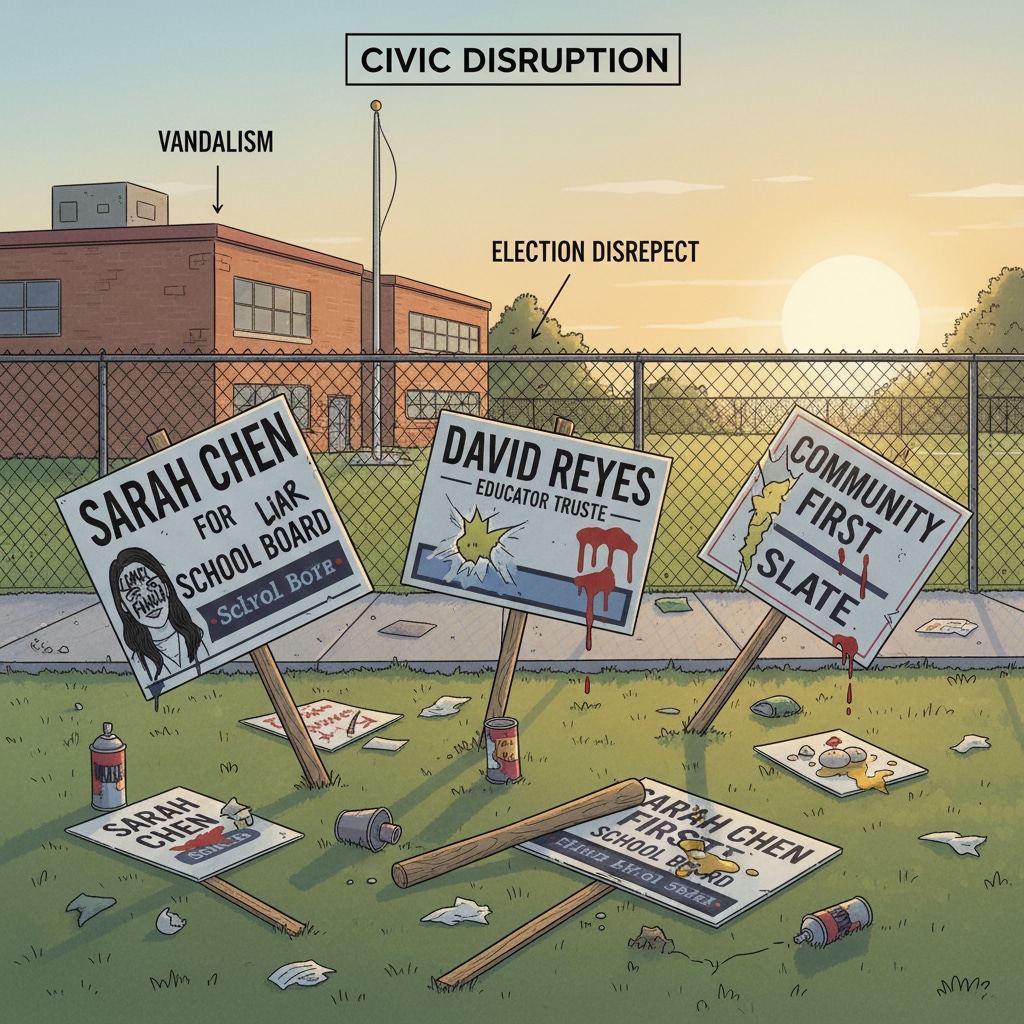The issues of school boards, electoral civility, and candidate behavior have come to the forefront in contemporary education governance. In New Jersey, the incident where school board candidates vandalized their opponents’ campaign signs is a glaring example that reflects the decline of political civility in modern education. This trend not only undermines the integrity of the election process but also has far-reaching implications for the future of education.

The Growing Politicalization of School Board Elections
School board elections are increasingly becoming battlegrounds for various political agendas. In the past, these elections were mainly focused on educational matters such as curriculum development, teacher hiring, and school facilities improvement. However, in recent times, they have been infiltrated by broader political ideologies. For example, issues like mask mandates during the pandemic and the teaching of certain social and political concepts in schools have turned these elections into highly charged political contests. According to Education Week, more and more outside political groups are getting involved in school board elections, pouring in resources and influencing the outcome. This has led to a situation where candidates are often chosen based on their political affiliations rather than their educational expertise.
The Erosion of Electoral Civility
The lack of electoral civility in school board elections is a worrying phenomenon. Candidates are engaging in unethical behavior, such as spreading false rumors about their opponents, using derogatory language, and as seen in New Jersey, physically damaging campaign materials. This kind of behavior not only creates a hostile environment for the candidates but also discourages potential good candidates from participating. Civility in elections is crucial as it promotes healthy debate and ensures that the best candidates are selected based on their merits. As stated by Britannica, an electoral system that lacks civility can lead to a breakdown in trust among the community members and the elected representatives.

To address these issues, it is essential to rebuild an election culture that is centered on the essence of education. This involves setting clear ethical guidelines for candidates, promoting public awareness about the importance of civil elections, and ensuring that the focus remains on educational priorities. By doing so, we can safeguard the future of education and ensure that school boards are led by individuals who are committed to the well-being of students.
Readability guidance: This article uses short paragraphs and lists to summarize key points. Each H2 section provides relevant information in a clear manner. The proportion of passive voice and long sentences is controlled, and transition words are used throughout the text to enhance readability.


